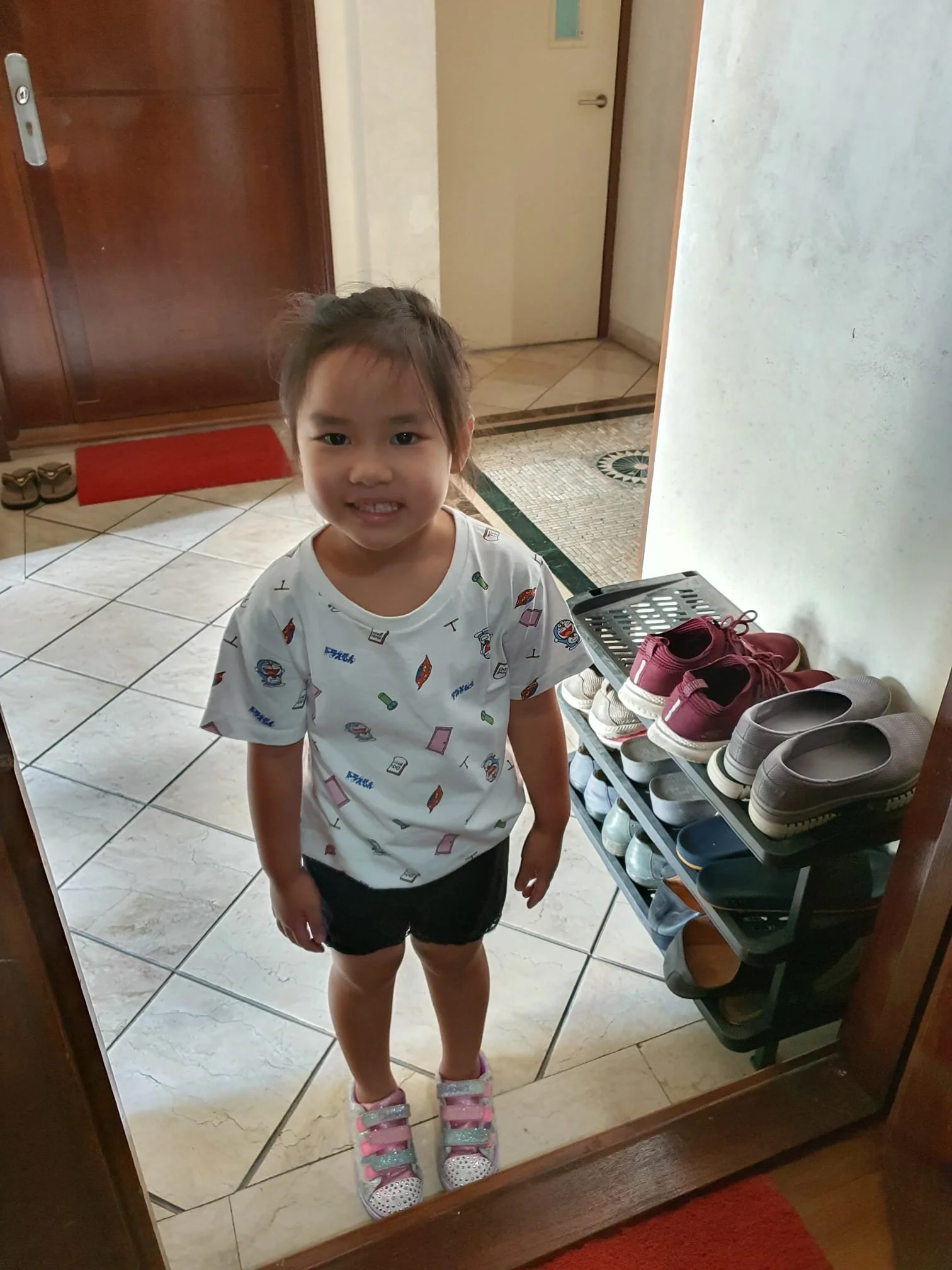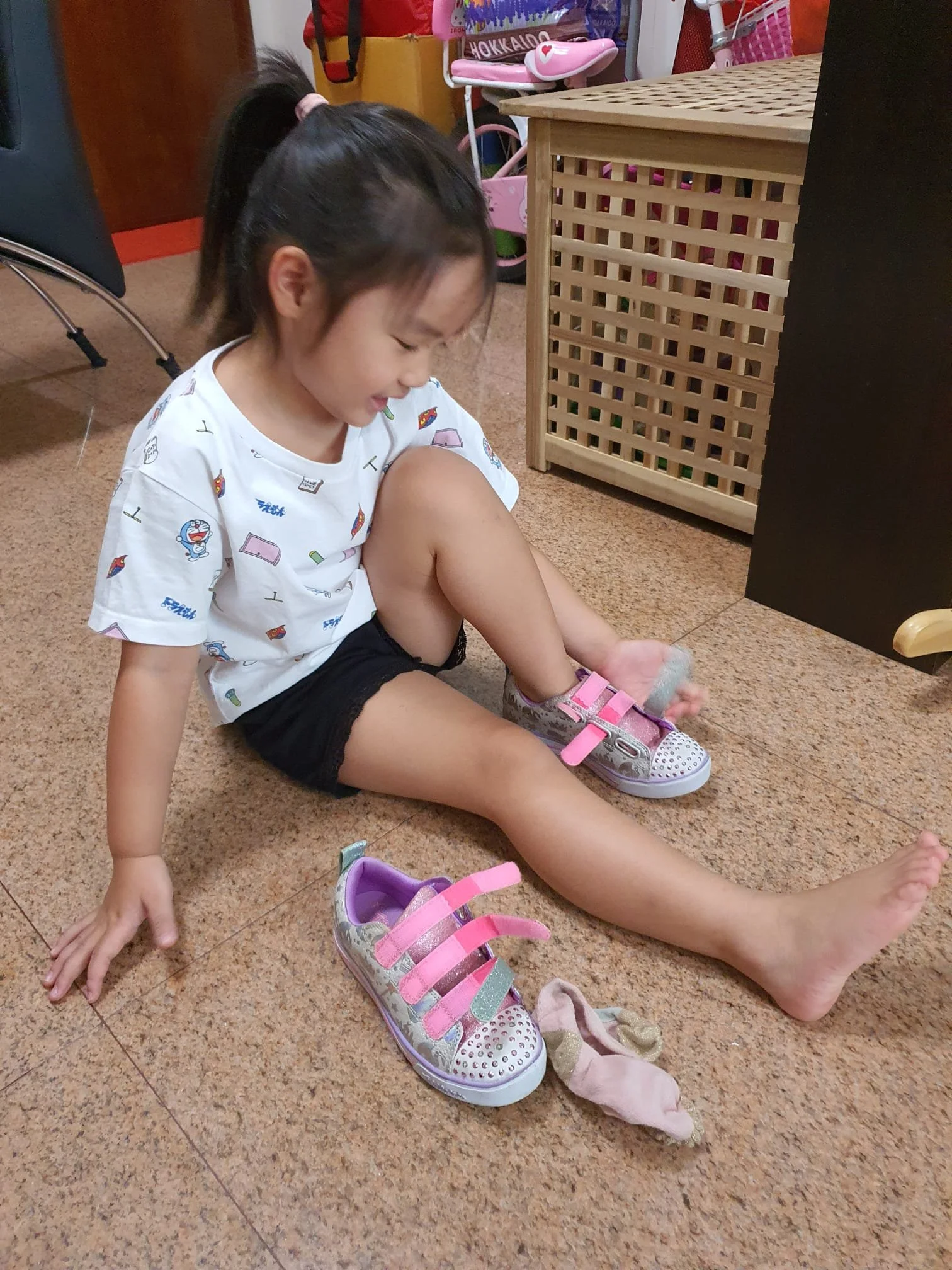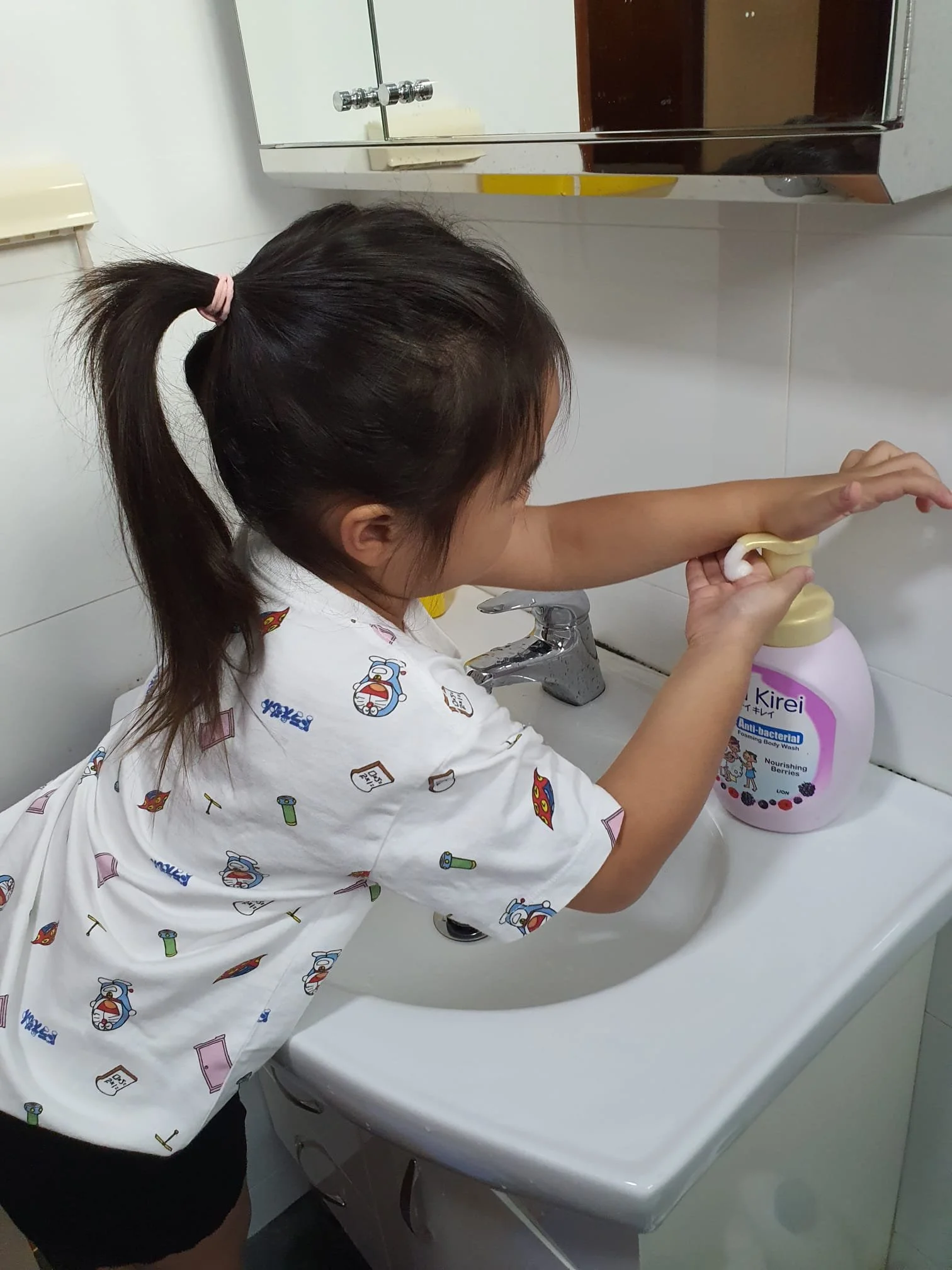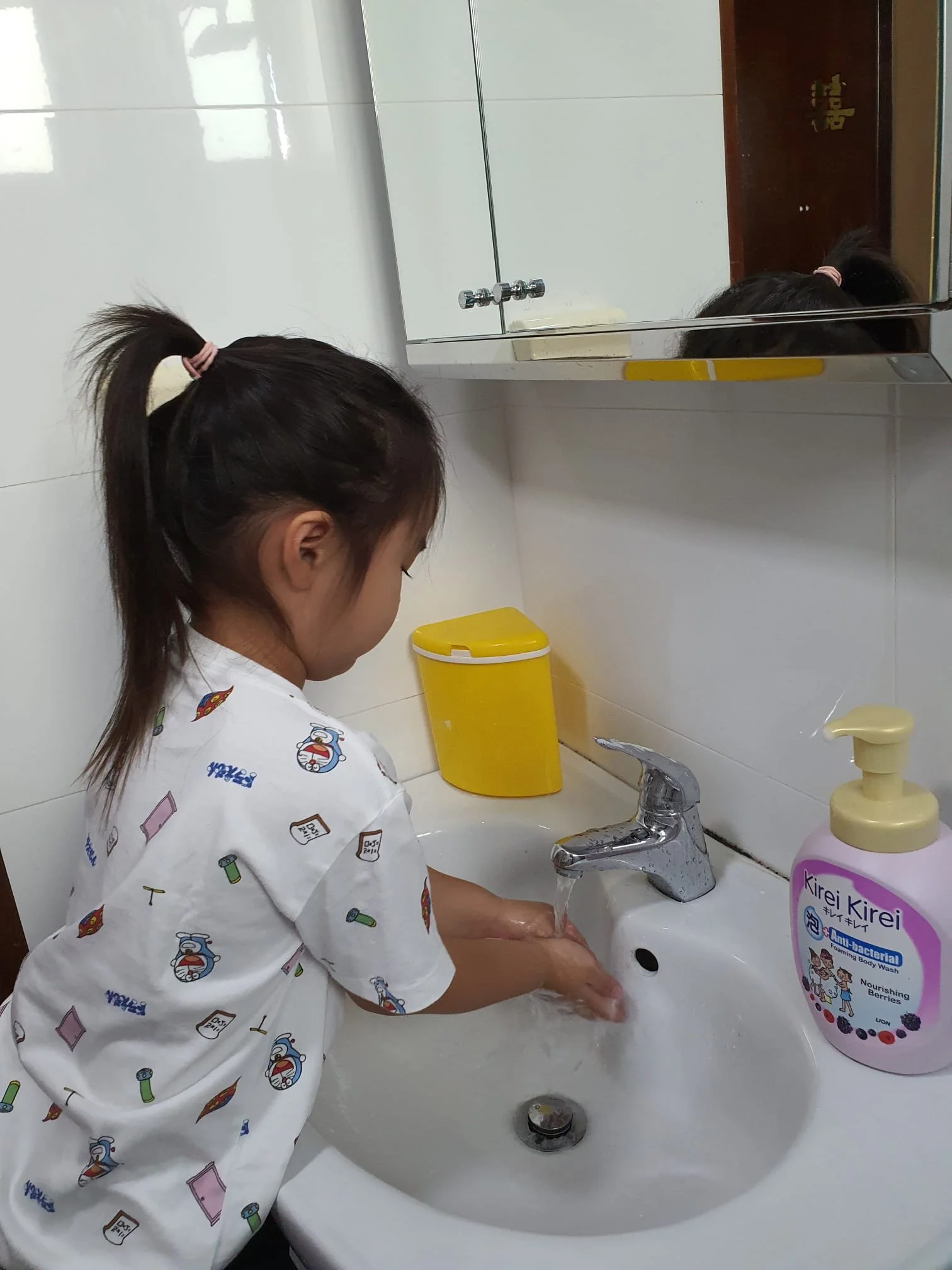Routines are Good!
Most of us have routines. It could be a morning routine, a bedtime routine, or even a weekend routine. Some of us have more than one routine in a day.
The pictures below show an example of ‘after school’ routine of a little girl. After returning home from school, she has to remove her shoes and socks, keep them away on the shoe rack and then wash her hands.
We have seen the benefits of routines in ourselves and the families that we worked with. Benefits we see include:
- A well-managed day, e.g., punctual for various activities without rushing around or getting stressed
- Work gets completed
- Children are more well-behaved
- Children learn more skills
- Decreased level of anxiety in anxious children
Why do routines bring the benefits we see?
Routines bring predictability. Routines allow us to recognise what are expected of us, the daily tasks that need to be done and the time frame in which they have to be done. This helps us to complete the tasks. Our children will know what they are supposed to do and are more willing to carry them out rather than doing what they want and getting upset when we ask them to do what is needed. Over time, they are more likely to carry out the routines independently and spontaneously. Children who are anxious will know what they are doing each day and therefore are more likely to feel less anxious.
Routines that are consistently carried out create ample opportunities for skill practice. As a result of constant practice, the skills are likely to be acquired at a faster rate or sharpened. New skills that children need to learn will be acquired more quickly if they are incorporated into a routine. For example, if your children are learning turn taking skills, they are more likely to learn the skills faster when you incorporate them into their daily play routine than if they only get to practice the skills as and when there are opportunities.
Given the benefits of routines, consider setting them up for yourself, your children, or your family if you don’t already have them. Here are some tips for setting up routines successfully.
Tip 1: Start with one routine at the beginning. Ideally, choose one that is not too difficult for you to carry out and will make a positive difference to your life or your family life. For example, if you are usually the one who wake your children up and send them to school, you may choose to work on getting your children to wash up and/or put on their own clothes to get ready for school. Conversely, if you work late a few nights in a week, setting up an evening routine for your children might not be ideal to start with as you may not be available every evening to carry it through.
Tip 2: For routines that involve others, discuss with them first before you plan them. For your children’s routines, plan them with other caregivers. This increases the likelihood that routines planned will be implemented.
Tip 3: Ensure that routines are carried through consistently at the beginning so that they are established. Routines that are only carried out sometimes send the message that they are not important and therefore one can carry them out whenever they want. Children may negotiate with their caregivers about not carrying them out or change them to suit their preferences, which may not be ideal.
Tip 4: Provide rewards for completion of routines when they are implemented at the beginning to increase the likelihood that they will be carried out again the next time. When a routine is first implemented, it is common that those involved find it hard to follow through because they are so used to their previous routines or having no routines. Giving a reward for completion is a positive acknowledgement and it motivates one to do it again the next time. Rewards are to be faded out once the routines are to be established.
Tip 5: Give small rewards so that it is sustainable for you. Rewards can be small and/or free, such as verbal praise (e.g., good job brushing your teeth), favourite food, extra screen time and even alternating between tasks that one likes and does not like.
If you are planning to set up routines, we hope you are successful in doing so and see the benefits they bring.






